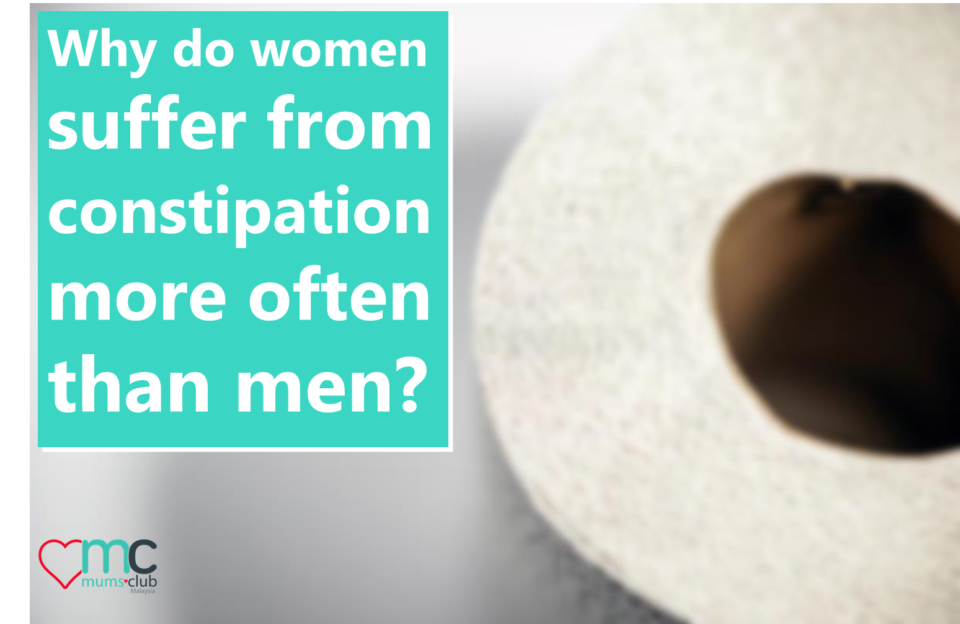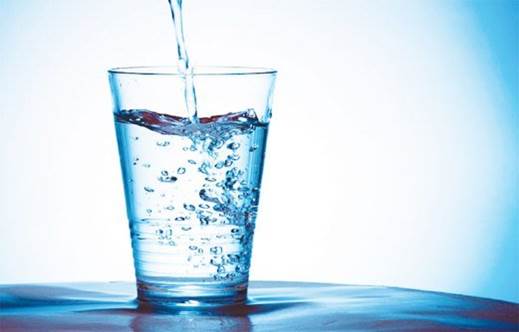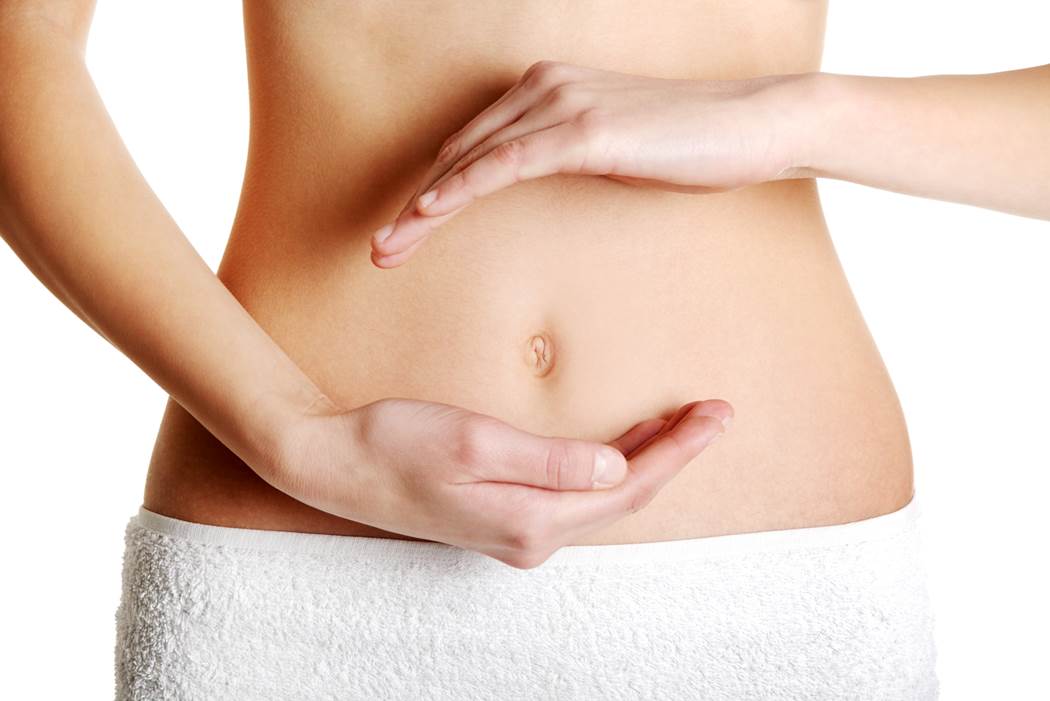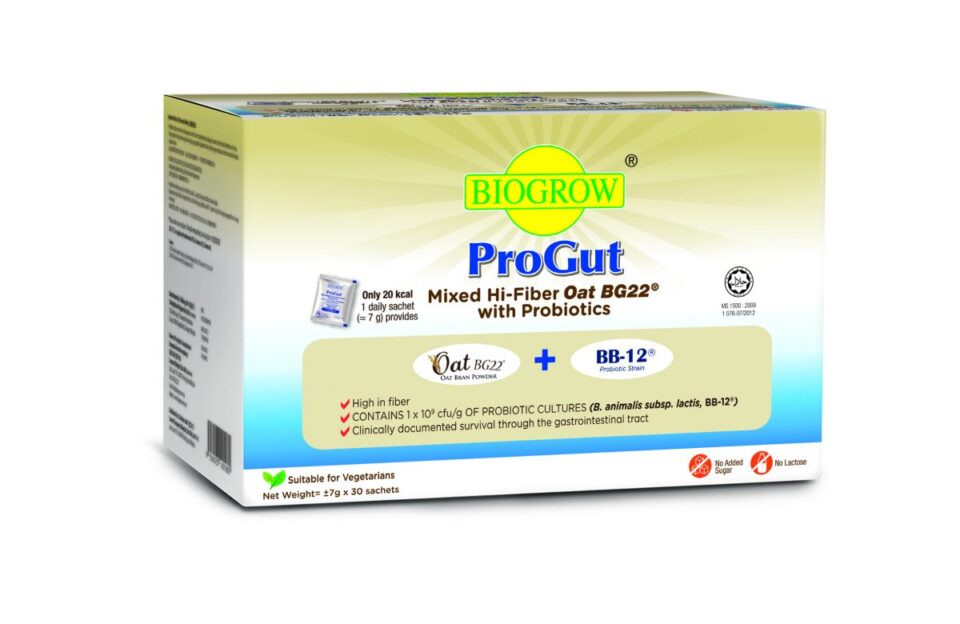
That is SO UNFAIR !
Women do all the hard work such as going through menstruation and even the excruciating pain of childbirth, which men will never get to experience. Yet, we have to deal with other issues such as constipation.

What is constipation?
Yes, we know this is a no-brainer as it is a common issue but, hey, a few words doesn’t hurt, does it?
Anyway, we know we have constipation when we have a hard time pooping and when our bowel movements become less frequent, especially if we experience three or fewer bowel movements within a week.
Although it is common to experience constipation occasionally, facing it on a regular basis might put us at risk of serious health complications if symptoms persist. We should know that constipation is one of the symptoms associated with irritable bowel syndrome or IBS, a digestive disorder linked to poor gut health.
Why is it more prevalent in women?
Undeniably, women are physiologically different from men. Change in hormones during the following period of time can have impact on the health of women:-
- Menstruation (also known as period)
- Pregnancy
- Menopause
Menstruation
Our hormonal change is one of the main factors for altering our bowel movements, which is especially the case whenever we go through our menstrual cycle.
Before menstruation begins, the body has a surge in progesterone that will drop once we start to bleed. The sudden increase in progesterone level before menstruation can lead to constipation and this explains why some women tend to experience constipation few days before their menstruation. However, constipation problems will usually subside once menstruation begins.
Pregnancy
Women tend to experience constipation commonly during the early stages of pregnancy. This is mainly attributed to – you’ve guessed it – hormonal changes led by an increase in progesterone levels, which causes relaxation of our body’s muscles including intestines. As a result, this slows down the intestinal movements which can lead to constipation.
Besides that, the condition of a woman’s uterus can affect the bowel during pregnancy as well. In the later stages of pregnancy, the growing uterus can put pressure on the bowel, making it harder to move stool through the intestines.
Menopause
During menopause, women will experience drastic fluctuations in estrogen and progesterone levels. The sudden drop in estrogen and progesterone levels will decrease the ability of muscles in the colon to contract – resulting in reduced bowel movement, which causes constipation.
Way to overcome it
Yes, the truth hurts and hormonal changes can’t be avoided for women. However, that doesn’t mean we can’t do anything about it!
First thing we need to understand is that our gut plays a vital role in our health, particularly in bowel function, digestion, immunity and many other aspects of health. We may be surprised to find that our gut is the home to more than 100 trillion microorganisms known as gut microbiota.
Everyone’s gut microbiota is unique, but most of us have at least 700 different species of bacteria living in our intestines. About 85% of the gut microbiota is made up of beneficial bacteria (often referred to as “good” bacteria), which helps to digest food to release energy. The remaining 15%, however, is made up of potentially harmful bacteria (also known as “bad” bacteria).

The ideal balance gut microbiota is 85% of “good” bacteria and 15% of “bad” bacteria. When the balance of gut microbiota is disrupted, this condition is known as dysbiosis and can have a major impact on gut health, causing a person to experience digestive health problems such as constipation.
Natural ways for constipation relief

Eat high-fiber foods
Increasing dietary fiber intake helps to add bulk to stool, which makes it easier to pass through the digestive system and increase bowel frequency.

Drink plenty of fluids
Constipation is sometimes related to dehydration in the colon. Therefore, it is important to drink sufficient amount of water. When our body is properly hydrated, less water will be withdrawn from the colon which helps to keep our stool soft and easy to pass. Water, soup, fruit and vegetable juices are good sources of hydration.

Exercise regularly
Exercising not only helps stimulate bowel movements and reduce constipation but also improves our posture and minimise the occurrence of backaches. For pregnant women, light or low impact exercises are fine.

Take probiotics
Probiotics are live microorganisms which, when administered in adequate amount, confers health benefits on the host. You may know that probiotics can be derived naturally from fermented foods such as kimchi, yoghurt, tempeh and etc. However, the species of probiotics in these fermented foods are not identifiable and not all of them have sufficient colony-forming units (CFUs) – the number of live probiotic bacteria – to be considered effective.
When choosing probiotics, it is vital to look for clinically proven probiotic strains that can provide proven health benefits when taken in effective doses to ensure product safety and efficacy.
Studies have shown that clinically proven probiotic strain can help to:-
- Improve intestinal function.
- Restore the balance of gut microbiota.
- Promote good gut bacteria growth.
- Control bad gut bacteria growth.
- Support healthy cell growth with better nutrient digestion & absorption.
- Boost immune system.
A Drug-Free Way to Manage Bowel Movement

Biogrow® ProGut
Biogrow® ProGut Mixed Hi-Fiber Oat BG22® with Probiotics is a food supplement formulated with a combination of well-researched Oat BG22® oat bran fiber from Sweden as prebiotics and the world’s most documented probiotic B.lactis, BB-12® probiotics strain from Denmark. This unique combination confers the benefits of both fiber and beneficial bacteria that provides a synergistic effect for an improved intestinal function and balanced gut microbiota.
This Dual Action Formula (oat bran fiber from Oat BG22® oat bran powder + B.lactis, BB-12® probiotics) helps:-
- Alleviate constipation
- Restore and maintain the balance of gut microbiota
- Increase bowel movement frequency
- Increase fecal bulk
- Soften the stools
Features of Biogrow® ProGut:-
- High in fiber (soluble & insoluble fibers)
- Contains viable probiotic count of 1 billion CFU of B.lactis, BB-12® per sachet
- High in Protein, Magnesium, Iron & Zinc
- No added sugar or preservatives
- Free from artificial ingredients
- No refrigeration required
To consume, it is recommended to take 1-2 sachets a day after meals or anytime convenient. You may mix 1 sachet (=7g) in a glass of room temperature or cold water, fruit juice, milk or sprinkle onto cold cereal, salad and yoghurt. Each sachet contains 2.4g of soluble and insoluble fibers and 1 billion CFU of live probiotic cultures.
Biogrow® ProGut is available in all leading pharmacies including Guardian, Caring, AA Pharmacy, Big Pharmacy and more. Alternatively, you may shop online from Biogrow® Shopee Official Store by tapping on the ‘BUY NOW’ button below!
Like what you see? Buy now at Shopee

